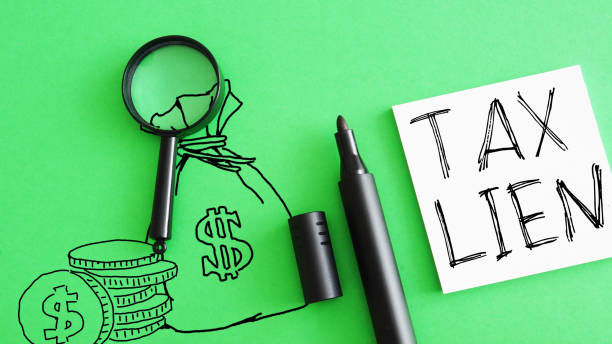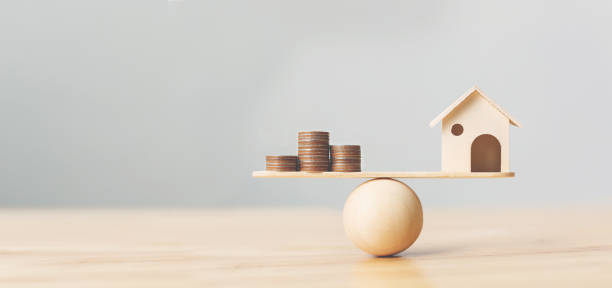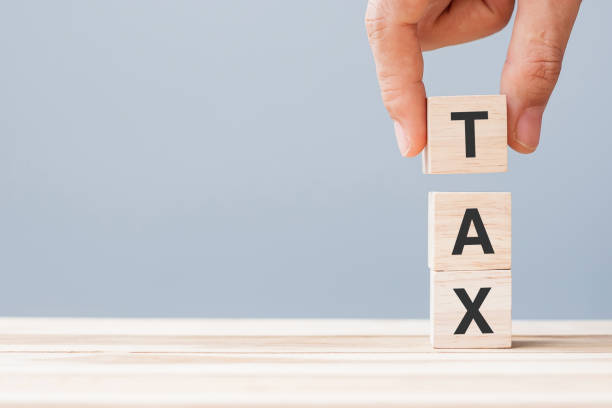Do You Owe Revenue Canada Money?
Owing money is never fun but there may be no worse feeling than when you owe Revenue Canada (also known as Canada Revenue Agency or CRA for short). Tax debt often comes as one big debt due within 30 days. If you can’t repay it fast enough, the interest and penalties CRA imposes will add up pretty quickly. For many people, the idea of being audited by Revenue Canada is anxiety-inducing. An audit may be uncomfortable, but if you are a homeowner and you owe income tax arrears, there may be a serious cause for concern.
The fact is that the Canada Revenue Agency has powers beyond that of any credit card company, collection agency, or law firm. The CRA can place a federal tax lien on your home and they can do it without notice. Revenue Canada doesn’t have to take you to court to able to register the title of your home unlike a credit card company or bank. CRA can also garnishee your wages and freeze your bank accounts at major financial institutions with one simple letter request. Dealing with tax debt may be an afterthought for many people, but the need to address this type of debt – is critical.
What is a tax lien from the Canada Revenue Agency?
An income tax lien is what happens when the federal government registers a security interest against your home. For the most part, a CRA lien is just like a mortgage because it must be paid before you refinance or sell your home. The Canada Revenue Agency does not have to take a consumer to court to register a lien against their home. Many homeowners aren’t even aware they have a CRA lien until they attempt to refinance or sell their property.

If you don’t act quickly to pay the tax owed to the Canada Revenue Agency they will use their collection powers. Revenue Canada is no joke and they have a variety of ways to enforce payment on debts owed to them. With this creditor, being proactive is of the utmost importance. We can help you review your options, don’t hesitate to reach out if you’ve received a notice from CRA.
What are the consequences of a Revenue Canada tax lien?
If you have tax debts and Revenue Canada has placed a tax lien on your home the consequences can be severe. Owing the Canada Revenue Agency and the Government of Canada can result in the following outcomes:
- Excessive interest
- Suspended tax returns
- Notices are sent to credit reporting agencies
- Large Penalties
- Inability to access your equity
- Wage garnishment
- Mortgage renewal refused
- The forced sale of your home
The consequences of a CRA tax lien are punitive. A tax lien is also hard to fix because most mortgage lenders will not let you use your equity to pay them off once they’re in place. Traditional bank lenders will not allow you to consolidate income tax arrears that are more than one year old. With interest and penalties adding up, it is imperative that you deal with outstanding taxes immediately. Letting an income tax liability go ignored is ill-advised and could end up costing you your home. The longer you wait to act, the fewer options you’ll have.
Can I file for bankruptcy to eliminate my tax debts with the CRA?
Yes, you can file for bankruptcy to deal with your personal income tax debts. However, going bankrupt on personal income tax debt is a drastic step that can ruin your credit for many years. If you own a home, going bankrupt becomes more complicated. Any assets you own must be declared in bankruptcy and the value of your assets must be factored into the cost of your debt relief.
If you have equity in your home it is viewed just like having cash in your bank account. If you’ve got too much equity in your home in bankruptcy, you may be forced to sell your home. When you own a home with a lot of equity, bankruptcy should always be your last resort. Home loans are always the preferred route to pay tax debts when there is available equity. In addition to the increased costs of bankruptcy, if Revenue Canada has already registered on title for your property, a bankruptcy trustee will not be able to get rid of that debt for you. Bankruptcy does not get rid of “secured” debt – and when CRA registers on the title, the status of the income tax debt you owe changes from an “unsecured debt” to a “secured” debt.
How can I get a loan to repay Revenue Canada?
Getting a loan to pay off tax debts from the Canada Revenue Agency is not easy. Getting approval for an unsecured loan for a large amount can be very difficult in today’s economy. Big banks follow strict lending rules that will not allow you to use the equity in your home to consolidate large personal income tax debts.
Fortunately, it is still possible to pay off income tax arrears using your home’s equity. If you know where to go, a home equity loan may be the most effective tool that you can use to pay back Revenue Canada. Home equity loan lenders don’t have strict stipulations and rules about what you use your mortgage funds for so you are free to use it to pay off the tax debt. Debt consolidation via a private lender can be flexible. Equity-based lending means you won’t have to fit into the perfect box to be approved for a loan.
Home equity loan lenders also don’t place a lot of emphasis on credit or income requirements. Above all, their primary concern is that you have equity in your home. The more equity you have the better your chance of borrowing enough money to pay off CRA and get rid of your Revenue Canada lien. Homeowners with equity can easily secure a loan to pay off their tax arrears and remove CRA’s claim against their home. If you’re looking to sell your property it may be wise to remove Canada Revenue Agency before you list.

Where can I get a home equity loan to pay off Revenue Canada?
Getting an income tax loan to pay off CRA can be difficult. Knowing which lenders to approach can also be difficult. If you don’t know who to approach your chances of approval are less assured. Of course, using a mortgage broker to navigate lenders is like pressing the easy button. Mortgage brokers know which lenders will permit a homeowner to pay Revenue Canada through a home equity loan. Brokers can simplify the application process for everyone involved. Turnedaway.ca specializes in home equity loans to help you pay Revenue Canada. We can provide additional alternatives beyond selling your home or refinancing to help you get on track and avoid future trouble with CRA.
We are a niche brokerage that specializes in challenging mortgages. CRA-related issues qualify as challenging. We routinely arrange home equity loans to pay back Canada Revenue Agency. Our lenders make common-sense decisions based on equity, not credit or income. If you own a home, Turnedaway.ca can approve a secured income tax loan in as little as 24 hours and have your lien discharged as soon as possible.
Why choose Turnedaway.ca to get a home equity tax loan?
Need a little break? We can even arrange to have your home equity tax loan prepaid for up to one year. One year to allow you the time you need to get your financing in order before you have to start making payments. One year can make a huge difference. Turnedaway.ca is Canada’s premier mortgage broker for home equity tax loans. We’ve dedicated ourselves to making sure that homeowners have access to their equity. Turnedaway.ca works with flexible mortgage lenders. Lenders who pride themselves on providing equity-based loans – instead of credit or income.
Yes, we can even help you remove that pesky Revenue Canada lien if you have one. If you’ve been turned away, turn to us – we get mortgages approved. We offer free consultations, you can reach us by phone, at 1-855-668-3074 or, by clicking on the apply today button below.






